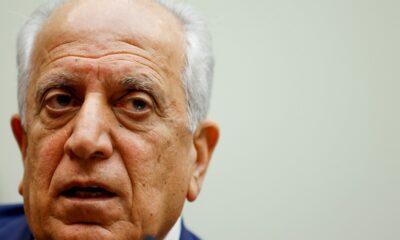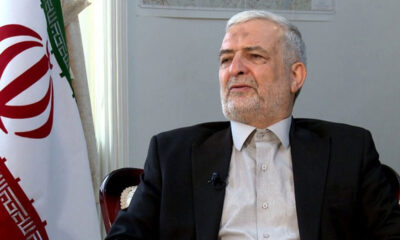Latest News
India to Chair UNSC’s Crucial Taliban Sanctions Committee

India will chair the UN Security Council's crucial Taliban and Libya sanctions, and counter-terrorism committee, Indian Representative to the UN said.
T. S. Tirumurti, Permanent Representative of India to UN, in a video message said Thursday: “I am happy to announce that India has been asked to chair three important committees of the Security Council which include the Taliban Sanctions Committee, counter-terrorism committee, and the Libyan sanctions committee.”
Tirumurti stated that the Taliban Sanctions Committee also in the 1988 Sanctions Committee, has always been a “high priority” for India.
“Keeping in mind our strong interest and commitment to peace security development and progress of Afghanistan,” he noted.
The Indian diplomat emphasized that India’s chairing this committee at this moment would help to “keep the focus on the presence of terrorists and their sponsors threatening the peace process in Afghanistan.”
“It has been our view that peace process and violence cannot go hand in hand,” Tirumurti said.
Referring to the counter-terrorism committee, which will be chaired by India, as a non-permanent member of the powerful15-nation UN body, in 2022, Tirumurti said the committee was formed in September 2001 soon after the “tragic terrorist attack” of 9/11.
“The chairing of this committee has a special resonance for India which has not only been in the forefront of fighting terrorism especially cross-border terrorism but has also been one of its biggest victims,” the Indian envoy pointed out.
Tirumurti said the Libya Sanctions Committee, also called the 1970 Sanctions Committee, is a “very important” subsidiary body of the Council, which implements the sanctions regime, including a two-way arms embargo on Libya and assets freeze, a travel ban and measures on illicit export of petroleum.
“We will be assuming the chair of this committee at a critical juncture when there is an international focus on Libya and on the peace process,” he said.
The UN Security Council has five permanent members including the US, Russia, China, the UK, and France who have veto powers, and 10 non-permanent members, five of which are elected each year for a two-year term.
In 2021, India, Norway, Kenya, Ireland, and Mexico secured seats for the whole period as non-permanent members, and Vietnam, Estonia, Niger, Tunisia, and Saint Vincent, and the Grenadines will be a part of the first year.
Latest News
IEA says Israel’s actions more complicate situation in the region
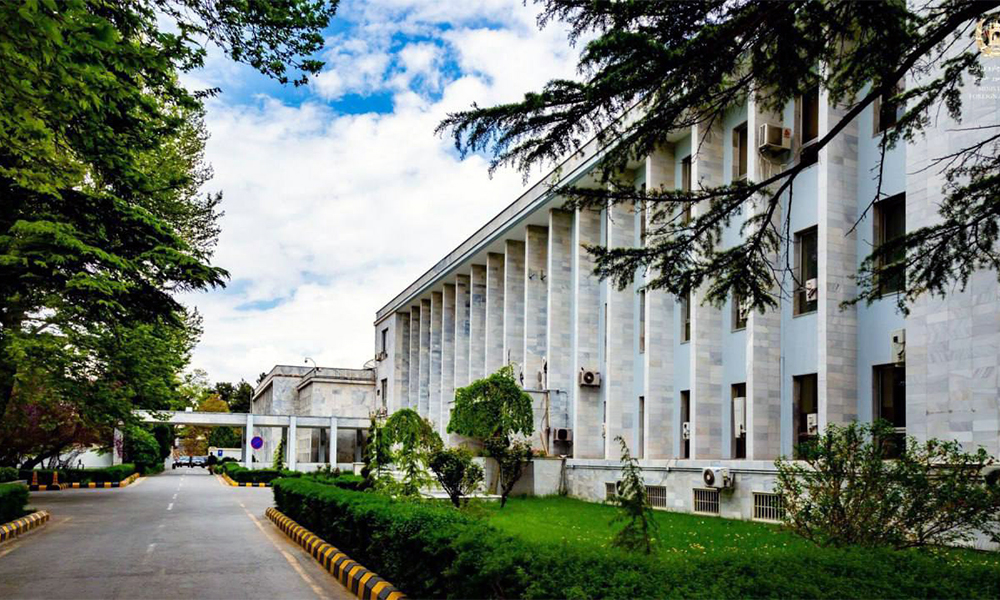
The Ministry of Foreign Affairs of the Islamic Emirate has condemned the attacks of the "Zionist regime" on Iran and said this country's actions are an attempt to intensify violence in the region, which makes the unpleasant situation in the region even more complicated.
The Ministry of Foreign Affairs said in a statement on Saturday that Israel's actions are considered a clear violation of Iran's privacy.
“All the influential parties are responsible for stopping the Zionist regime from spreading more violence and crimes in the region,” the statement said.
The statement stated: “Unfortunately, in the course of more than a year, the Zionist regime not only ended its crimes in Gaza but also expanded it to other areas.”
The ministry added that continuing this situation has led to serious concerns about the humanitarian and security situation in the region.
The Iranian army confirmed on Saturday that the country's military bases in three provinces, including Tehran, Khuzestan and Ilam, were targeted by Israeli attacks.
Latest News
IEA’s restrictions on girls’ education cannot be called Islamic: Khalilzad
Khalilzad said in a post on X that the current IEA leadership has “sadly turned Afghanistan into the only country in the entire world where female education above elementary school is not allowed.”
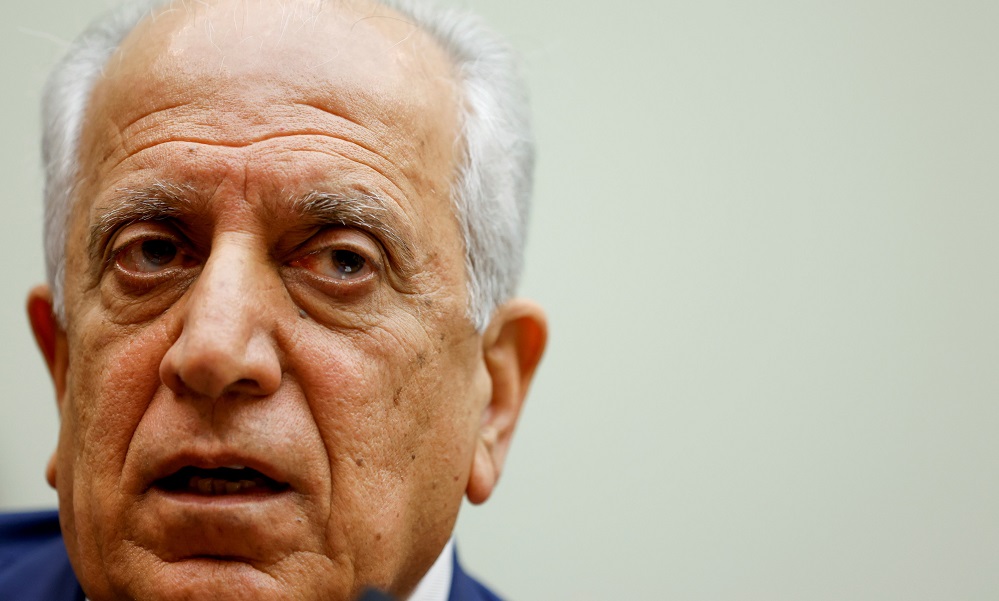
Zalmay Khalilzad, former US special envoy for Afghanistan peace, has criticized the Islamic Emirate’s restrictions on girls’ education, saying that the move cannot be called Islamic.
Khalilzad said in a post on X that the current IEA leadership has “sadly turned Afghanistan into the only country in the entire world where female education above elementary school is not allowed.”
“This includes the Islamic world, leading to the conclusion that what is being done on girls' and women's higher education can not be called Islamic. In fact, calling it Islamic is a disgrace,” Khalilzad said. “It is not shared by even one other Islamic country.”
The former diplomat mentioned that BRICs in their summit statement added their voices to the uniform global opposition to this policy of the IEA.
The Islamic Emirate has previously said that laws in Afghanistan are based on Sharia, and that the girls’ education is an internal matter.
Latest News
Mullah Baradar inaugurates construction of second Kabul-Jalalabad road
Mullah Baradar said that the road will be built based on the decree of the leader of the Islamic Emirate and with toll collected on Kabul-Jalalabad highway.

Deputy Prime Minister for Economic Affairs Mullah Abdul Ghani Baradar inaugurated the construction of a second road between Kabul and Jalalabad cities on Saturday.
Mullah Baradar said at a ceremony that the road project is important for transportation as it would connect the two major commercial and strategic provinces of Kabul and Nangarhar.
He added that trade facilities between the two important economic, commercial and transit provinces would not only contribute to the growth of domestic trade, but also play an important role in the development of trade relations with countries in the region and beyond and can contribute to the national economy of the country.
Mullah Baradar said that the road will be built based on the decree of the leader of the Islamic Emirate and with toll collected on Kabul-Jalalabad highway.
He said that with the completion of the second Kabul-Jalalabad road, traffic congestion in the first road will be reduced, which will reduce traffic accidents.
Mullah Baradar said that the construction of the road will facilitate traffic, safe, low-cost and fast transportation of commercial goods, and will also lead to the growth of small and medium-sized businesses along the road.
The second road of Kabul-Jalalabad highway, which is 150 kilometers long, starts from Bagrami district of Kabul and passes through Kabul’s Khak Jabbar district and Hesarak, Khogyani and Surkhrod districts in Nangarhar province before it is connected to Nangarhar’s ring road.
-

 Sport4 days ago
Sport4 days agoAfghanistan A make ACC Emerging Asia Cup semis despite Hong Kong’s win
-
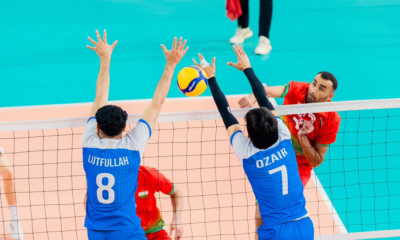
 Sport4 days ago
Sport4 days agoAfghanistan volleyball team tumbles 3-2 to Tajikistan
-

 Sport4 days ago
Sport4 days agoACB names squad for Afghanistan’s ODI series against Bangladesh
-
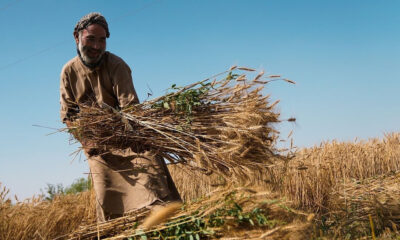
 Latest News5 days ago
Latest News5 days agoAfghanistan’s wheat production for this year up by 10%
-

 Latest News5 days ago
Latest News5 days agoGhazni dam project underway after initial survey conducted
-
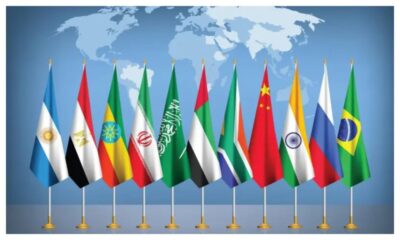
 Latest News5 days ago
Latest News5 days agoBRICS summit gets underway in Kazan, Russia
-
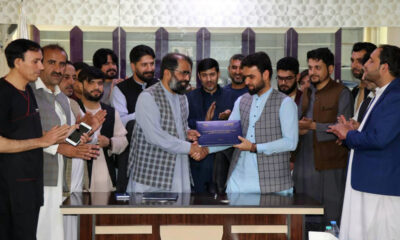
 Health4 days ago
Health4 days agoAIJU seals deal with private hospital for Afghan media workers
-

 Latest News3 days ago
Latest News3 days agoWife of late boxing legend Mohammad Ali to visit Kabul






